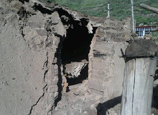
SANSHA, Hainan, July 22 (Xinhua) -- As a member of the earliest generation of people to live on Yongxing Island, Pan Haiwu and his colleagues hope that their careers can be passed on to their kids.
"I have been living on the island for 22 years. I hope our kids can carry on our lives here, just as I followed in the footsteps of my parents," said Pan, who works at a local sanitation station.
The 2.13-square-km island is home to the government seat of China's youngest city of Sansha, which was officially set up in July last year to administer about 2 million square km of islands, coastal areas and territorial waters in the South China Sea.
Pan punctually begins his work at 6:00 a.m. every morning, dressed routinely in an orange work uniform that protects him from the hot sun, although it also leaves him soaked in sweat by the end of the day.
"My colleagues and I are trying our best to beautify the island. People who have visited the island before have been amazed to see how clean the island is now," Pan said.
A local sanitation station wasn't officially established until 2011, when Pan was appointed as the head. The establishment of the station is part of efforts to preserve the local environment and cope with a rising number of residents.
Last summer saw the establishment of Sansha, which has boosted the construction of ports, schools, power plants and other infrastructure projects. This has also increased the amount of work that the sanitation workers must complete.
"We are short-staffed. In addition to routine work, we are also responsible for planting trees. Sometimes we work for a whole day to clean up construction waste," Pan said.
Waste is taken to a nearby dump, where it is recycled or burned.
Unlike Pan's colleagues, who were born in the 1960s on the mainland, Pan was born on the island. His parents, who lived on the island and worked for company collecting bird droppings, sent him to the island province of Hainan when he was six months old.
As there were no schools or adequate medical services on Yongxing, Pan did not return until he finished his studies. When Pan's three kids were born, he left them to his wife in Hainan's coastal city of Qionghai.
Pan's children all chose to work in Hainan after finishing their schooling. "They often call me. Sometimes they complain about me being away from them when they were young," Pan said.
Chen Xuerong and Hanling, Pan's colleagues, have managed to persuade their kids to work on the island, with Chen's son working at the same sanitation station she does. Han's daughter works as a waitress at a local hotel.
"I wish there were schools so I could have my son around. I regret that I may not have raised him properly," Chen said.
Harsh living conditions have not helped to attract young people to the island. Located 180 nautical miles away from the nearest port, nearly everything on Yongxing has to be imported.
"We now have supermarkets, drug stores and banks on the island. But the biggest difficulty remains the lack of fresh water," said Pan, whose hair is discolored from years of showering with salt water.
The island mainly relies on sea water desalinization facilities and a rainwater collection system to provide drinking water. To save fresh water, salt water is used for washing and showering.
Another young people simply find the island boring.
"You can only watch TV or take a walk on the island after work. I like watching movies on my phone, but the Internet connection sucks," said Feng Yingyi, Chen's son.
Great changes have taken place on the island since Feng first arrived in 2006, but he is not sure whether he will make it his home.
"More work needs to be done to enrich life here," he said.
"The young generation has different views about life. But I hope that we can make the island a better place for our offspring who are willing to stay," Chen said.
















 Solar halo observed in Beijing and Hebei, N China
Solar halo observed in Beijing and Hebei, N China


![]()
